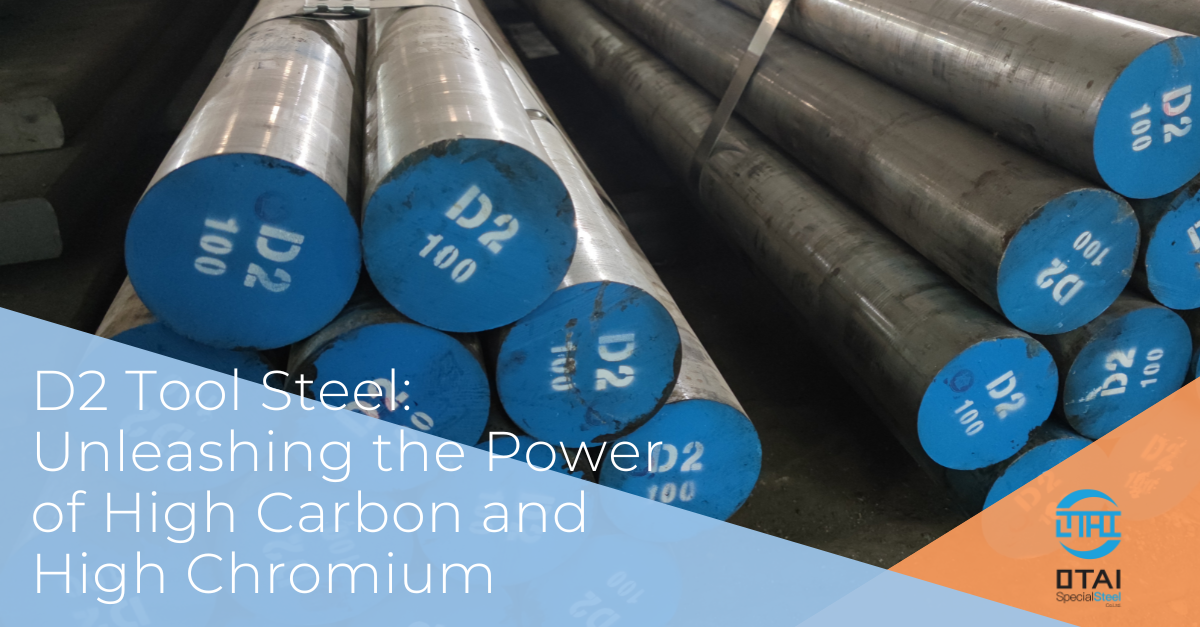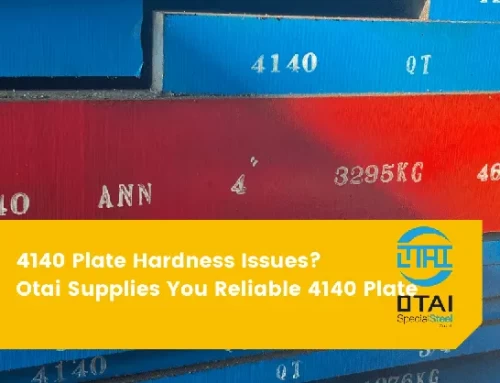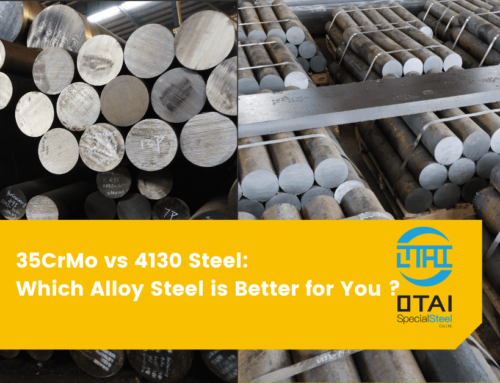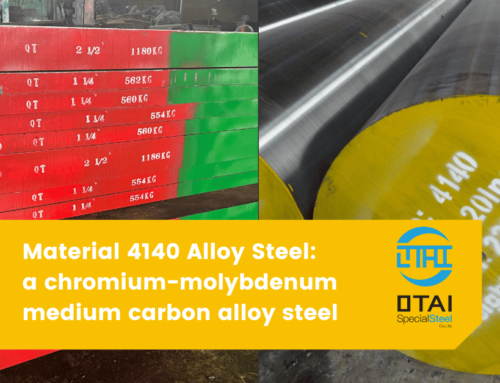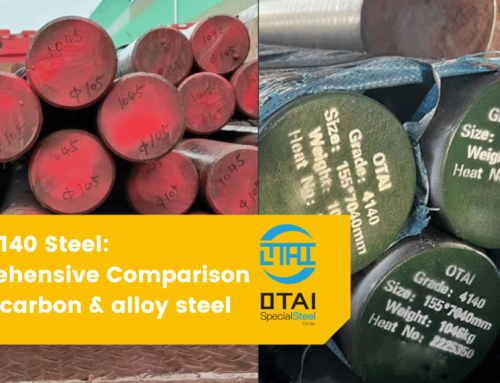If you are in tool steel industry , you must know the famous steel – D2 cold work tooling steel. This high-carbon, high-chromium steel holds a distinctive spot in the air-hardening category. Its exceptional hardness and a unique microstructure teeming with chromium-rich alloy carbides have paved the way for a wide range of applications. This post of ASTM D2 steel will leave you well-informed about its features, applications, and benefits.
What Defines D2 Tool Steel?
In the universe of high-carbon, high-chromium steels, tool steel D2 emerges as a powerhouse. It’s the hardness and wear resistance that sets D2 steel apart. But that’s not all! D2 has a unique microstructure. It’s replete with large, chromium-rich alloy carbides that enhance its durability, especially in high-stress environments.
Unveiling the D2 Steel Standards and Equivalents
D2 material is manufactured in adherence with the ASTM A681 standard, making it a member of the Cold Work Tool Steel family. Globally, it finds equivalents in DIN 1.2379, JIS SKD11, GB Cr12MoV, and EN X153CrMoV12.
| Standard | Steel Grade | Country/Region |
|---|---|---|
| ASTM A681 | D2 | USA |
| DIN ISO 4957 | 1.2379 | Germany |
| JIS G4404 | SKD11 | Japan |
| GBT 1299 | Cr12MoV | China |
| EN | X153CrMoV12 | EU |
The Composition of Steel D2: as per ASTM A681
D2 tooling steel is defined by its unique composition. It’s high in carbon and chromium content, with additional elements boosting its performance. Here’s what makes up D2 steel:
| Element | Percentage in D2 Steel |
|---|---|
| Carbon | 1.40-1.60% |
| Chromium | 11.00-13.00% |
| Molybdenum | 0.70-1.20% |
| Vanadium | 0.50-0.70% |
| Silicon | 0.10-0.60% |
A Look into the Mechanical Properties of D2 Material
D2 tool steel flaunts a set of mechanical properties that make it indispensable in several industries. With superior hardness, excellent wear resistance, and substantial toughness, D2 steel material stands tall among its peers.
| Mechanical Property | Value |
|---|---|
| Hardness (Rockwell C scale) | 58-62 |
| Tensile Strength (psi) | 260,000 |
| Yield Strength (psi) | 240,000 |
| Modulus of Elasticity (psi) | 30 x 10^6 |
| Poisson’s Ratio | 0.27-0.30 |
Heating Up the D2 Steel: The Heat Treatment
Heat treatment plays a vital role in optimizing D2 tool steel’s performance. The process involves annealing, slow furnace cooling, and air cooling. Then comes pre-heating and the all-important air or oil quenching.
| Heat Treatment Process | Temperature Range |
|---|---|
| Annealing | 871-899°C |
| Slow Furnace Cooling | 4.4°C/hour down to 649°C |
| Air Cooling | Room temperature |
| Pre-heating for hardening | 816-871°C |
| Hardening | 982-1010°C |
Where Does D2 Tool Steel Find Application?
D2 tool steel finds use in a multitude of sectors, all thanks to its remarkable hardness, wear resistance, and durability. From long-lasting tools and dies to
components for the aerospace industry, D2 steel continues to be an essential material. The manufacturing industry, too, relies heavily on D2 steel. Punches, dies, blanking tools, gauges, and cam rolls are but a few examples of D2 steel in action.
Why Choose Otai Special Steel for D2 Cold Work Tool Steel?
When it comes to D2 steel, Otai Special Steel is a trusted partner. Why do customers lean towards us? Here’s why:
- We pay meticulous attention to our customers’ needs. Our intention is to meet and exceed their expectations with our high-quality D2 tool steel.
- Our extensive knowledge and experience in the steel industry have allowed us to consistently cater to varied demands. We never stop exploring ways to enhance our steel quality and customer service.
- We offer more than just D2 material. With Otai Special Steel, you get comprehensive after-sales service and a promise of quality assurance.
- Our customer-centric approach drives us to act promptly and efficiently. When you choose Otai Special Steel, you choose quality, commitment, and excellence.
FAQ about D2 Tool Steel
- What makes D2 resistant to wear? D2 steel’s impressive wear resistance comes from its high carbon and chromium content. These elements form large, chromium-rich carbides in the steel’s microstructure, enhancing wear resistance.
- What are the global equivalents of D2 steel? D2 is known worldwide under different standards: DIN 1.2379 in Germany, JIS SKD11 in Japan, GB Cr12MoV in China, and EN X153CrMoV12 in the EU.
- How does heat treatment enhance D2 steel’s qualities? Heat treatment involves processes like annealing, slow furnace cooling, and quenching. These steps optimize the hardness, structural stability, and wear resistance of D2 steels.
- What are some applications of D2 cold work steel? D2 tool steel is widely used in manufacturing tools and dies, components for the aerospace industry, and many more high-wear applications.
- Why choose Otai Special Steel for steel D2? Otai Special Steel promises high-quality D2 cold working tool steel, comprehensive after-sales service, and a commitment to meeting customer needs.
In conclusion, D2 tool steel’s outstanding qualities make it a go-to material in high-wear applications. Otai Special Steel, with its dedication to quality and customer service, stands ready to meet your D2 steel needs.

